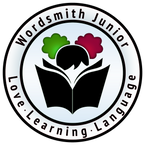Dr. Linda Spears Bunton

Linda Spears-Bunton, Ph.D.
Florida International University
College of Education
Let me begin by saying that when talking about learning to read at an early age,
means beginning at birth. If I had my way, every child would come home from the
hospital with a small library of lovingly selected children’s books. Like oral,
language, which linguists have demonstrated can be observed within about 12
hours of birth, infants mimic the mouth movements of adults—doing what we all
do—holding our face close to baby’s, making sounds –-almost instinctively in the
high pitched tonal frequency babies can hear, and saying words—sometimes
nonsense, sometimes not. The point is, babies and their adult caretakers and
admirers establish a communication pattern that is critical to their survival and
intricately linked to our understanding of the babies needs. Reading too, is a socially
constructed linguistic practice; learning to read can, and I believe should, begin in
infancy.
Most teachers through training and experiences have come to understand the power
and the payoff of reading early and often to their children. Moreover, they expect
that the parents of other people’s children have, or should have had, the same
experiences and the same success as their own children. And while I think it is
justifiable to argue with this presumption of sameness, there are points of departure
where most, if not all of us can find common ground. Simply stated, they are the
following:
- Learning to read is the most precious and enduring gift every adult can give freely and easily to a child. The ability to read shares the importance scale with healthy food, shelter, adequate clothing and love;
- Reading is the foundation for everything else a child will be asked to do both in and out of school. That is, to think, write, speak, make judgments, enumerate and decipher the decipher the word and the word critically and accurately;
- While are indeed three centuries beyond the criminalization of persons of African descent for even knowing how to read, the reliable failure of schools across the country to teach children, especially children of color and children of the poor to read, write or think critically, schools produce an astoundingly consistent high output of children who can not read, who are labeled Special Education classes, largely because of their reading scores.
- The cost of teaching a child to read from infancy through elementary school is about 30 minutes a day. The payoff a lifetime of literacy and empowerment.
Teaching a young child to read is a gift that gives and multiples for a lifetime.
Ironically, teaching young children to read is as easy as cuddling up with a little one
in a quiet anyplace with a book in hand. I always recommend beginning in infancy
and using nursing time, or bottle time to relax and read aloud. The goal is for the
child to associate reading, with comfort, physical satisfaction, building confidence in
their own competence and your love. Machinery can never replace the warmth,
immediacy, sensual presence or voice that identify a loving presence. As the pattern
of reading repeats over time, even very young children will begin to exhibit the
pattern of reading—pointing at familiar objects, babbling words in a mimic of the
adults or older sibling’s voice, insisting on holding the book and turning the pages,
repeating favorite lines on cue, finishing sentences, holding the book upright and
asking for a story by name. Teaching young children to read situates unlimited
possibilities in the minds as both enjoyable and achievable.
